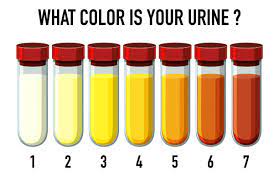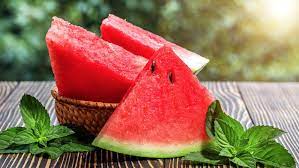Do you drink enough water daily - Unveiling the Importance of
Drinking Enough Water Daily

Introduction:
In the hustle and bustle of our daily lives, it's easy to overlook one of the simplest yet most vital components of our well-being—water. The human body is composed of approximately 60% water, and every cell, tissue, and organ relies on this life-giving substance to function optimally. The question we often neglect to ask ourselves is, "Do we drink enough water per day?" In this article, we will delve into the importance of hydration, signs of dehydration, and practical tips to ensure you meet your body's water needs.
Understanding Your Body's Need for Water:
Water is essential for our survival, and its significance cannot be exaggerated. It helps regulate body temperature, lubricate joints, aid digestion, and transport nutrients throughout the body, among other vital functions. Not consuming enough water can result in dehydration, a condition in which the body lacks sufficient water to perform its regular activities.
According to the National Academies of Sciences, Engineering, and Medicine, it is recommended that men consume about 3.7 liters (125 ounces) of water each day, while women should consume about 2.7 liters (91 ounces), including all beverages and foods. However, the amount of water an individual needs may vary depending on factors such as their age, weight, physical activity level, and climate.
Signs of Dehydration:
1. **Thirst:**
The most obvious signal that your body needs more water is the sensation of thirst. However, relying solely on thirst may not be sufficient, as the feeling of thirst often arises after the body is already mildly dehydrated.
2. **Dark Urine:**
The color of your urine can be a valuable indicator of hydration. Dark yellow or amber-colored urine may suggest dehydration, while light yellow or pale straw-colored urine is a sign of adequate hydration.

3. **Fatigue and Lethargy:**
Dehydration can lead to feelings of fatigue and lethargy, affecting your overall energy levels and cognitive function.
4. **Dry Skin and Lips:**
Insufficient water intake can result in dry and less elastic skin. Chapped lips may also be a visible sign of dehydration.
5. **Headaches:**
Dehydration can trigger headaches and migraines. Staying hydrated is often recommended as a preventive measure for individuals prone to frequent headaches.
6. **Dizziness and Lightheadedness:**
In severe cases of dehydration, dizziness and lightheadedness may occur, indicating a significant lack of fluids in the body.
Practical Tips for Staying Hydrated:
1. **Set a Schedule:**
Establishing a routine for water intake can be incredibly helpful. Consider setting reminders on your phone or incorporating water breaks into your daily schedule.
2. **Invest in a Reusable Water Bottle:**
Having a reusable water bottle within arm's reach makes it convenient to sip water throughout the day. Choose a bottle with measurements to track your daily intake.
3. **Flavor Your Water:**
If plain water doesn't appeal to you, try infusing it with slices of fruit, cucumber, or herbs. This adds a burst of flavor without the added sugars found in many flavored beverages.
4. **Monitor Your Urine Color:**
Keep an eye on the color of your urine to gauge your hydration status. Light yellow or pale straw-colored urine is a positive indicator.
5. **Eat Water-Rich Foods:**
Incorporate fruits and veggies with high water content like watermelon, cucumber, oranges, and celery into your diet to stay hydrated.

6. **Consider Your Activity Level:**
Physical activity increases the body's water needs. Be mindful to drink extra water when exercising, especially in hot and humid conditions.
7. **Limit Dehydrating Beverages:**
Reduce the intake of caffeinated and alcoholic drinks that can cause dehydration as they can have diuretic effects, causing loss of fluids.

8. **Listen to Your Body:**
It's important to listen to your body's signals. If you feel thirsty, take a moment to hydrate. Make drinking water a habit, even if you're not thirsty.
Conclusion:
In the journey towards optimal health, the significance of staying adequately hydrated cannot be overstated. The benefits of proper hydration extend beyond quenching thirst – it impacts your energy levels, cognitive function, and overall well-being. By making a conscious effort to drink enough water daily and being attuned to the signs of dehydration, you empower yourself to lead a healthier, more vibrant life. Next time you reach for a drink, ask yourself if you're drinking enough water each day. Your body will thank you. Next time you reach for a drink, ask yourself if you're drinking enough water each day. Your body will thank you.


You must be logged in to post a comment.